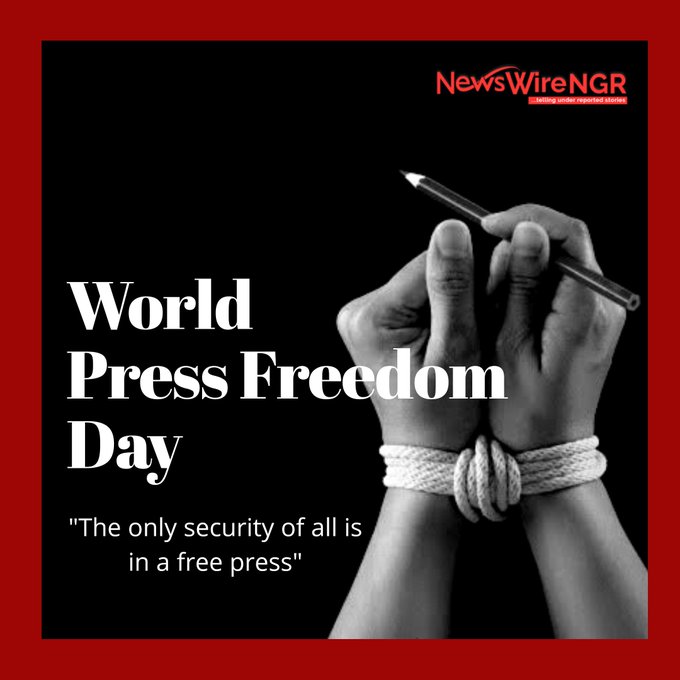Featured
World press freedom and Nigeria’s shrinking media and civic space

World Press Freedom Day is observed annually on May 3rd to raise awareness about the importance of press freedom and to remind governments of their duty to respect and uphold the right to freedom of expression enshrined in Article 19 of the Universal Declaration of Human Rights.
The day was proclaimed by the United Nations General Assembly in 1993 and is celebrated around the world with events, conferences, and awards ceremonies to recognize the vital role of a free press in fostering democracy and promoting transparency and accountability in public life.
The theme for World Press Freedom Day 2021 is “Information as a Public Good”, which highlights the need for information to be made widely available in the public interest and the importance of quality journalism in ensuring that information is accurate, reliable, and unbiased.
On this day, governments, media organizations, and civil society groups are urged to reflect on the challenges facing press freedom around the world, to promote the safety of journalists, to support independent media, and to resist efforts to restrict freedom of expression or control the media. It is also an opportunity to pay tribute to journalists who have lost their lives or been imprisoned in the course of their work, and to celebrate the many contributions of a free press to society.
Press freedom is a fundamental human right and an essential component of a democratic society. It allows journalists and media organizations to report the news, investigate issues of public interest, and hold governments and other powerful actors accountable. However, in recent years, there have been concerns about the shrinking media space in Nigeria and the challenges faced by journalists and media organizations in the country.
Nigeria has a relatively free and diverse media landscape, with a range of print, broadcast, and online news outlets. However, there have been incidents of government censorship, harassment of journalists, and attacks on media organizations. In recent years, there have been several cases of journalists being arrested or detained for their reporting, and media outlets being shut down or fined by government agencies.
One of the most significant challenges facing the media in Nigeria is the lack of protection for journalists and media organizations. Despite the constitutional guarantees of press freedom, there is no specific law protecting journalists and media organizations from harassment or violence. This has led to a climate of impunity, where those responsible for attacks on journalists and media organizations are rarely held accountable.
Another factor contributing to the shrinking media space in Nigeria is the increasing use of laws and regulations to restrict media freedom. For example, the Cybercrime Act and the National Broadcasting Code have been criticized for their vague and broad provisions that could be used to stifle free speech and limit the freedom of the press.
Overall, the shrinking media space in Nigeria is a cause for concern, as it undermines the country’s democratic institutions and hinders the ability of journalists and media organizations to report the news and hold those in power accountable. It is crucial that the Nigerian government takes steps to protect press freedom and ensure that journalists and media organizations can operate without fear of harassment or reprisals.
The number of journalists and bloggers arrested in Nigeria in recent years is difficult to estimate with precision, as there have been several incidents of arrests and detentions across the country. However, according to reports from various media freedom organizations and human rights groups, there have been numerous cases of journalists and bloggers being arrested and detained in Nigeria in recent years.






